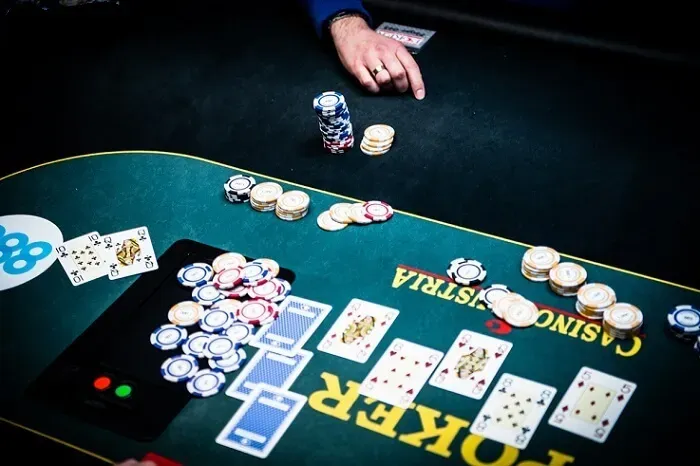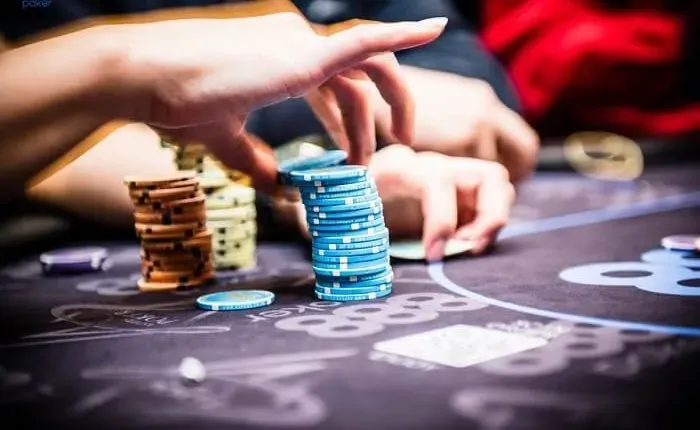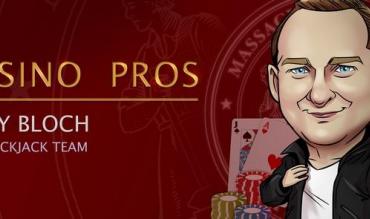1. AS YOU MIGHT HAVE GUESSED, “GAME THEORY” IS THE MATHEMATICAL STUDY OF GAMES
But not just any type of game. Game theory concerns only games of strategy between two or more competing players. Usually there’s a clear set of rules that define the possible moves that each player can make at each juncture in the game and a resulting score for each player at the end of each play of the game.
2. DON’T CONFUSE “GAME THEORY” WITH “GAMBLING THEORY”
Although the two do overlap. Gambling theory applies to games with uncertain outcome, with one or many players, with or without any skill involved. You could say that game theory is about games of skill, and gambling theory about games of chance (although a single-player gambling game that involves some skill would not be a subject of game theory). Video poker, which involves just a single player attempting to make winning combinations, has an element of skill but it still wouldn’t be a subject for game theory. But live poker, played amongst two or more people, is a fitting subject for game theory. In fact, poker games, especially simplified versions, have been used as paradigms in game theory since John von Neumann founded modern game theory back in the 1920s.
Similarly, game theory doesn’t apply to the game of blackjack, even when a skillful card counter gains an edge over the casino. But, if you consider the cat-and-mouse game that card counters have to excel at to be allowed to keep playing and beating the casino, game theory has a lot to say about that.

3. GAME THEORY SPLITS UP GAMES INTO TWO TYPES ALONG SEVERAL DIFFERENT CRITERIA
There are cooperative versus non-cooperative games, zero-sum (or more accurately, constant-sum) versus non-zero-sum games, simultaneous versus sequential games, games of perfect information versus games of imperfect information, and two-player games versus games with three or more player. There are also symmetric and asymmetric games, infinite games, combinatorial games, repeated games, discrete or continuous games, population games, stochastic games, meta-games, and so on.
It’s good to know that these terms exist, but I won’t be able to cover all of them here.
4. THE ECONOMIC PREDICTING BEHAVIOR MODEL
Game theory was originally developed as a mathematical model for studying and predicting economic behavior. But the wide variety of games that game theory contemplates makes it valuable as a model or tool for many fields, including evolutionary biology, philosophy, political science, computer science, warfare, and, of course, multi-person gambling games like poker. Remember the classic 1983 movie War-games? (If you haven’t seen it, that’s your first homework assignment.) That’s game theory applied to thermonuclear war.
“Perfect information” in game theory doesn’t mean that you know the future. It only means that each player has perfect information about the past
5. I WANT TO PLAY A (ZERO SUM) GAME
A game is zero-sum if the total score at the end of each play is zero. In other words, however much one person wins will be lost by the other player(s) in the game. Gambling games like poker are usually zero-sum games (not including the house rake, but also not including the entertainment value, which is why we play in the first place). There are some games where players can combined do better or worse depending on their strategies. Games like this are used sometimes as models for how cooperation can evolve between otherwise competing players.

6. CAN YOU PREDICT THE FUTURE? THAT’S PERFECT
“Perfect information” in game theory doesn’t mean that you know the future. It only means that each player has perfect information about the past (and present, if there are simultaneous moves by different players). There’s no hidden information that one player knows that another doesn’t, like a player’s hidden cards in a poker game. And there are no hidden moves, like the starting position in a game of battleship.
Games like chess, checkers, and Go are games of perfect information, and there’s a separate branch of mathematics called combinatorial game theory that focuses on them. “Regular” game theory focuses more on games with imperfect information. There still can be randomness and uncertainty in a game of perfect information. Backgammon is a good example, and Monopoly too. (Speaking of Monopoly and war games, in World War II, the Allies actually smuggled maps, compasses, and other tools to POWs, inside Monopoly boards!)
7. IT’S ALL ABOUT INELEGANCE
The main focus of game theory is on fully rational, intelligent players.
Game theory is interested in answering the question, “What’s the best way to play against opponents that think like I do?” The focus isn’t on how to play against a particular opponent with a certain strategy (although that can be a step in an algorithm for finding an optimal strategy). It’s like a genius playing against a perfect twin.
“What’s the best way to play against opponents that think like I do?” The focus isn’t on how to play against a particular opponent with a certain strategy.

8. PURE STRATEGY VS MIXED STRATEGY
In every two-player zero-sum game, like heads-up poker, there is a strategy (or a set of strategies) that cannot be beaten, even by the best opponent. That’s usually called the optimal strategy. If you follow the optimal strategy, you can even tell your opponent how you play (but don’t give away tells!) and you can’t be beaten in the long run. Optimal strategies often involve picking randomly (but with precise probabilities) between two or more different playing choices for some or all moves of the game, because an opponent can sometimes take advantage of a strategy that is too predictable. (That’s called a “mixed strategy” in game theory, as opposed to a “pure strategy” that always makes the same choice of move in identical situations.)
For example, in the game Rock-Paper-Scissors (also called Roshambo), the optimal strategy is to make each play one-third of the time. If you played rock even slightly more often than that, your opponent could have an advantage by playing paper more often than one third and/or playing scissors less often. Note that the optimal strategy in Roshambo won’t give you an advantage, but it will prevent your opponent from gaining an advantage. Fortunately, that’s not true of poker. The optimal strategy, if you can figure it out and follow it perfectly, will give you an advantage against almost anyone else.
You may have heard that poker researchers “solved” a real-life poker game last year (heads-up limit Texas Hold’em). They didn’t literally solve the game, but they did get close enough, using thousands of days of computer time, that they felt they could say that they “essentially” solved it. You could play perfectly against it for your whole life and still have a good chance of losing.
Quote: If you follow the optimal strategy, you can even tell your opponent how you play (but don’t give away tells!) and you can’t be beaten in the long run
9. EQUILIBRIUM STRATEGIES
Add just one more player, so there are 3 players in a game (or the game isn’t zero-sum) and there isn’t guaranteed to be a “best” or “optimal” way to play. However, there can be “equilibrium strategies”, called Nash equilibria, named after John Nash, the famous mathematician who won the Nobel Prize in Economics in 1994 for his groundbreaking work. Nash was the subject of the multiple-Academy Award-winning movie A Beautiful Mind, based on the book of the same name. Sadly, last year he and his wife were killed in a car accident in New Jersey, being driven home from the airport after another prize-winning trip to Norway.
10. GET OUT THERE AND PLAY
In a Nash equilibrium, no player can do better by unilaterally changing his or her strategy. But, two or more players could change their strategy together and see an improvement. Applying that to a poker game: when there are more than 2 players in the game, there is no strategy that will always win (even when your opponents aren’t purposefully colluding against you). That means you must adapt your strategy to your opponents, and how they are playing at that time. To complicate matters, they are going to be constantly trying to adapt to you and each other too. And, sometimes, even by chance, they may be playing in a way that you can’t beat in the long run. So, find a poker game that you’re comfortable in and can win at, or seek a heads-up (two player) game.

Finally, that brings us to your final assignment: get out there and play. (Tell ‘em you’re just doing your homework!)


